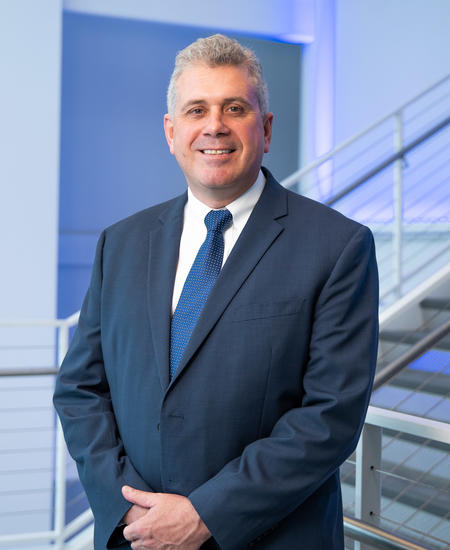On June 9, Rudy Buchheit, dean of the University of Kentucky College of Engineering, issued a statement to the College of Engineering community regarding racism, bias and unmerited privilege. The statement is below.
Dear colleagues and students,
Diversity. Equity. Inclusion. These words are mantra in business, industry, government, academia and society at large. After two weeks of brutality and incivility in plain view, these words and the values they represent seem distant. We need to bring them back.
The acts of violent and oppressive racism we have witnessed for too long have roots in bias and systemic privilege—forces that act in our own environment in their own way. We are all subject to the influence of implicit bias and we must be prepared to recognize and push back on unchecked systemic privilege—especially when it leads to racism, sexism and other forms of systematic discrimination. That starts with an honest reckoning of where we are, a reaffirmation of our responsibilities to one another as members of the engineering profession, and a commitment shared understanding and action.
In the College of Engineering, our commitment is to sustain an environment where everyone who associates with us can contribute to and benefit from our community. We can’t prepare professionals for practice, we can’t push the boundaries of understanding, we can’t capture the full benefits of technology unless everyone affiliated with the College is fully engaged, fully contributing and fully benefiting.
What we aspire to do to fulfill this commitment can be found in our 2019 Diversity and Inclusion Action Plan. I encourage you to take a look—or a second look at this document. I welcome your comments.
I say “aspire to do” because we’re not there yet. So, while the number of women, black, and Hispanic students and faculty members has increased in the college over the past several years, balancing demographics is only part of what we have to do.
Our culture and climate still reflect a profession that has been predominantly white and male as long as it has been in existence. Positive change has been occurring, but current events challenge us to quicken the pace. I am sharing this challenge with every member of our college community now.
In alignment with our Diversity and Inclusion Strategic Plan, I am asking the Diversity and Inclusion Committee to develop and implement programming for the college community around three ideas:
- The core concept inventory and vocabulary of diversity and inclusion work needs to be understood. We cannot fully appreciate the issues nor have substantive discussion on these matters without these elements. I am asking the committee to bring those forward and make a shared understanding of these elements a part of our college culture.
- Unearned privilege exists across dimensions of race, gender, sexual orientation and other aspects of identity. A core theme in diversity and inclusion work is that privilege is not the fault of those who have it, but their responsibility is to mitigate that privilege so that it does not disadvantage others. I am asking the committee to bring forward approaches for recognizing and mitigating unearned privilege in our college.
- Implicit bias exists in all of us as part of human nature. Unchecked it contributes directly to a chilly climate for underrepresented persons, and affects decision-making in ways that can reinforce and systematize privilege. I am asking the committee to bring forward approaches for recognizing and mitigating the negative effects implicit bias in our college.
In addition, I am asking the college and department leadership to work with faculty and staff in their areas to carefully examine our rules, policies, procedures and patterns of administration and bring forward changes to them to ensure they are free of bias and privilege and provide equity for current and aspiring members of our college community.
The path we must take to change our culture and climate is both challenging and uncomfortable. It is filled with opportunity for missteps. But none of that can be reason for silence and inaction.
Discovery, creation and problem solving define the domain of engineering, but they also define human nature. Engineering cannot be pushed to its limits without engaging and embracing our humanity—every bit of it, that every individual in our community brings. In this spirit, I look forward to what we can do together so that we can all contribute and benefit—fully.
Sincerely,
Rudy Buchheit
